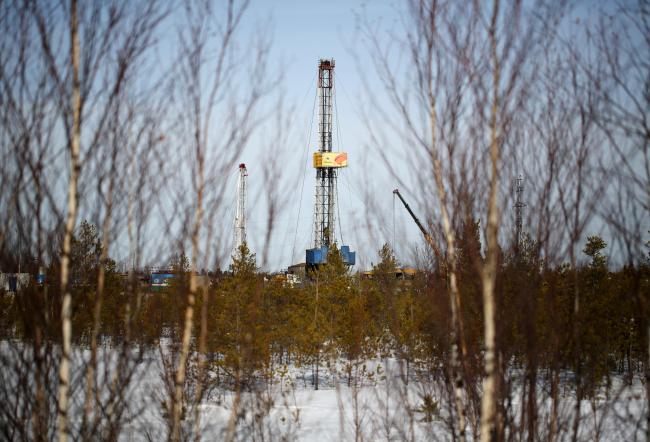(Bloomberg) -- Oil posted its longest streak of monthly gains since early 2016 after an OPEC-led coalition of major crude producers followed through on a much-anticipated extension of supply cuts.
Futures closed little changed for the day in New York and ended November up 5.6 percent. The Organization of Petroleum Exporting Countries reached a deal with non-OPEC allies such as Russia on Thursday to extend production curbs through the end of next year. A bullish addition to the deal: the cooperation from two previously exempt producers, Libya and Nigeria.
“The market is not too surprised at the OPEC announcement,” Michael Lynch, president of Strategic Energy & Economic Research in Winchester, Massachusetts, said by telephone. “Most of the noise coming out beforehand was pretty moderate and suggested nobody was going in ready for battle.”
Oil has risen about 17 percent since the last time producers gathered for an official meeting back in late May. Russia and Saudi Arabia are aligned in a long-term oil strategy and will oversee compliance monitoring, Saudi Arabia’s Energy Minister Khalid Al-Falih said at a press briefing in Vienna. Including Libya and Nigeria in the deal means there will be no surprises from the two producers next year, he said.
“We weren’t expecting fireworks from this meeting,” Chris Kettenmann, chief energy strategist at Macro Risk Advisors LLC, said by telephone. “The Saudis in combination with the Russians are trying to deliver a very curated message to suppress volatility in the oil market to attract investment.”
See: Betting on WTI backwardation seen in options trades as OPEC extends cuts
West Texas Intermediate for January delivery added 10 cents to settle at $57.40 a barrel on the New York Mercantile Exchange. Futures rallied as high as $57.98 and dipped as low as $56.82 a barrel during the session.
Brent for January settlement, which expired Thursday, rose 46 cents to end the session at $63.57 on the ICE Futures Europe exchange. Brent traded at a premium of $6.17 to January WTI. The more-active February contract advanced 10 cents to settle at $62.63.
OPEC will meet again in June to review the status of the accord, not to map out an exit strategy, Nigeria Oil Minister Emmanuel Kachikwu said at the Vienna meeting. Russian Energy Minister Alexander Novak also said the June meeting will provide the chance to assess what needs to be done.
“The market is getting most of what it expected,” Rob Haworth, who helps oversee $150 billion in assets at U.S. Bank Wealth Management in Seattle, said by telephone. “Even though they are extending, they are doing it cautiously.”
Oil-market news:
- Venezuela announced the arrests of Nelson Martinez and Eulogio del Pino, who both took turns running the oil ministry and state-run energy producer PDVSA, as a crackdown on alleged graft widened.
- U.S. September crude production was 9.48 million barrels a day compared with a 9.49-million preliminary weekly estimate, according to the Energy Information Administration
- Analysts, traders are bearish on WTI crude futures, according to a Bloomberg survey.
- Oil will reach at least $80 a barrel next year and supply will peak before demand, Andurand Capital’s Pierre Andurand said at Sohn London.
